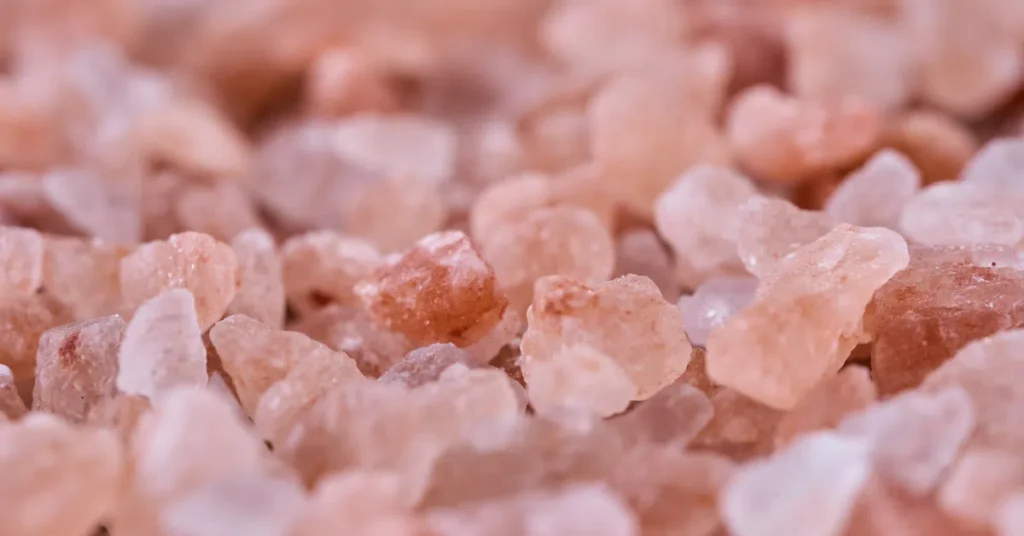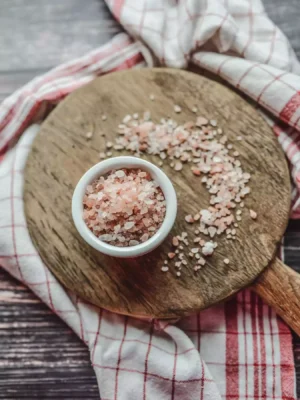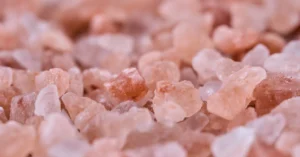Himalayan pink salt has gained worldwide popularity in cooking, wellness, and home décor. Known for its striking pink color and natural mineral content, it is often promoted as a healthier alternative to regular table salt. But what exactly is Himalayan pink salt, and how does it differ from the table salt commonly found in kitchens?
What Is Himalayan Pink Salt?
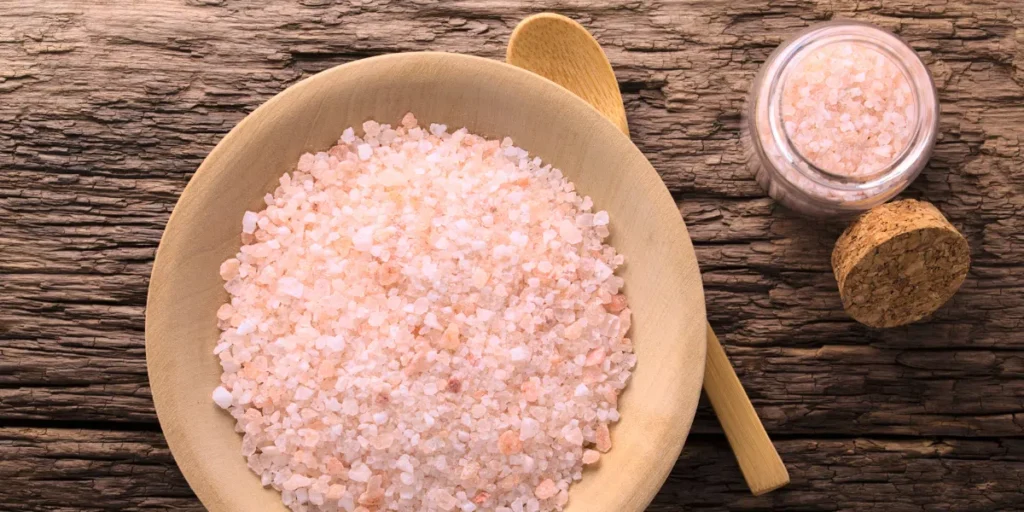
Himalayan pink salt is a natural rock salt mined from the Khewra Salt Mine in Pakistan, one of the largest and oldest salt mines in the world. Formed millions of years ago from ancient seas that evaporated, the salt is rich in minerals like iron, magnesium, calcium, and potassium. Its pink hue comes primarily from iron oxide and other trace minerals.
Unlike highly processed table salt, Himalayan salt is minimally refined. It retains its natural mineral composition, giving it a subtle flavor and distinct color. It is available in various forms, including fine grains for cooking, coarse crystals for salt grinders, and large blocks for culinary and wellness uses.
Table Salt vs. Himalayan Pink Salt
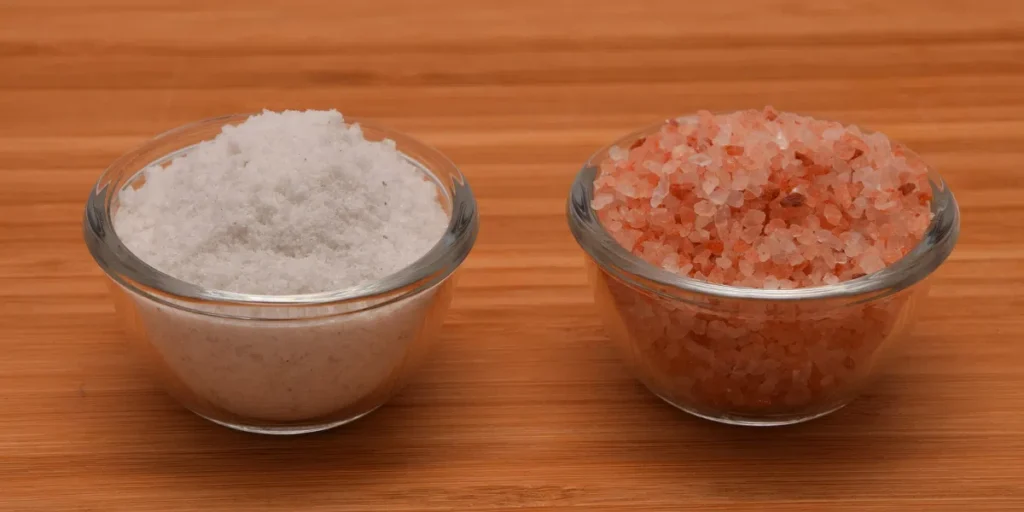
1. Processing and Purity
Table salt is highly refined and usually stripped of its natural minerals. Anti-caking agents and additives are often added to prevent clumping and enhance shelf life. Himalayan pink salt, on the other hand, is minimally processed, preserving its natural minerals and pure composition.
2. Mineral Content
Himalayan pink salt contains over 80 trace minerals, giving it potential health benefits and a unique flavor. Table salt, by contrast, mainly contains sodium chloride and often has added iodine to prevent deficiencies. While the mineral differences are subtle in small amounts, Himalayan salt is valued for its natural composition.
3. Flavor and Color
Himalayan salt has a gentle, slightly earthy flavor, making it ideal for seasoning without overpowering the taste of food. Its pink-orange color adds visual appeal to dishes and table presentations. Table salt has a sharper, more uniform taste and is typically white due to heavy processing.
4. Culinary Uses
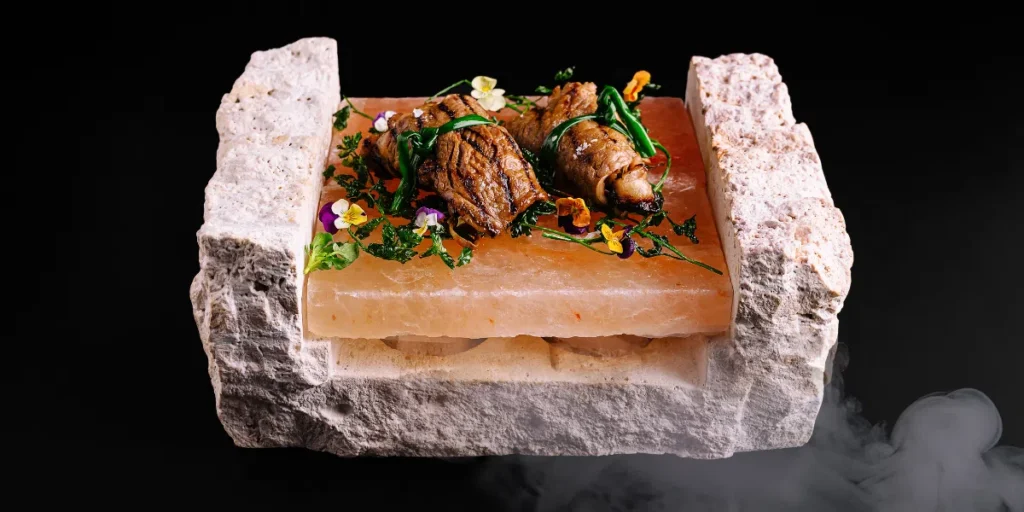
Both salts can be used for cooking, but Himalayan pink salt is often chosen for specialty applications:
- Finely ground for everyday cooking
- Coarse crystals for grinders or decorative presentation
- Large blocks for grilling or serving food
- Bath salts or wellness treatments in spa settings
Table salt is standard for baking, general seasoning, and commercial food production.
Health and Wellness Benefits
While both salts provide sodium, Himalayan pink salt offers additional trace minerals that may support overall wellness. Some reported benefits include:
- Supporting hydration and electrolyte balance
- Enhancing mineral intake in small quantities
- Use in bath salts for relaxation and skin health
It is important to note that while Himalayan salt is mineral-rich, the health benefits are subtle when consumed in typical dietary amounts.
Tips for Using Himalayan Pink Salt
- Store in a cool, dry place to prevent clumping.
- Use a salt grinder for coarse crystals to preserve texture.
- Incorporate in cooking, finishing dishes, or as a decorative touch.
- Explore culinary or wellness uses like Himalayan salt blocks or bath salts.
Conclusion
Himalayan pink salt stands out from table salt due to its natural mineral content, subtle flavor, and appealing pink hue. While table salt is heavily processed and uniform, Himalayan salt offers a more natural alternative for cooking, wellness, and decorative purposes. Choosing authentic Himalayan pink salt ensures a high-quality product rich in trace minerals and natural beauty.
Luumin.org offers premium Himalayan pink salt sourced directly from authentic mines, perfect for culinary, wellness, and home use. By incorporating Himalayan salt into your routine, you can enjoy its natural minerals, flavor, and visual appeal.

